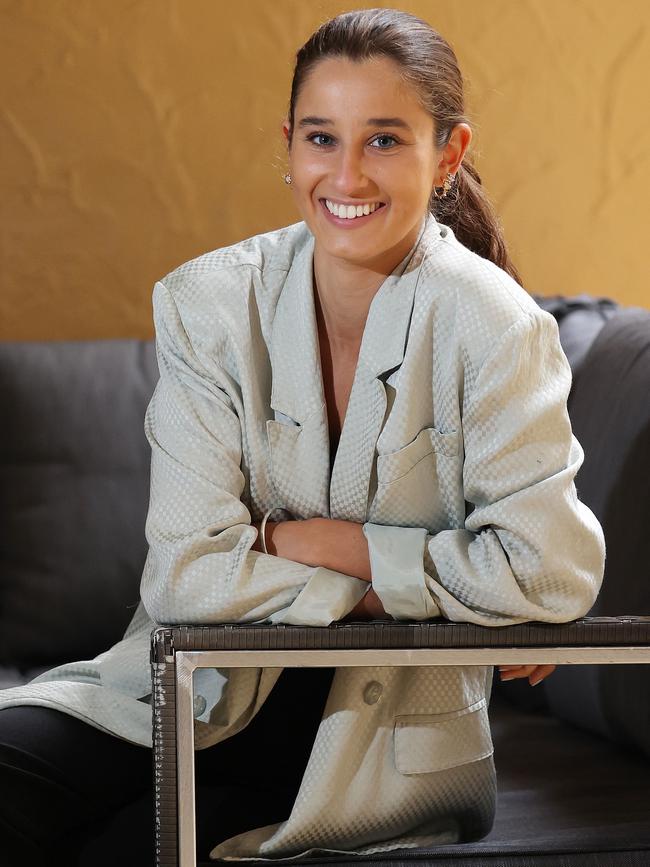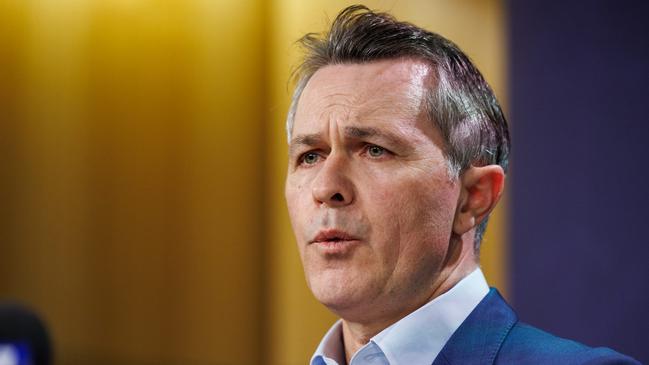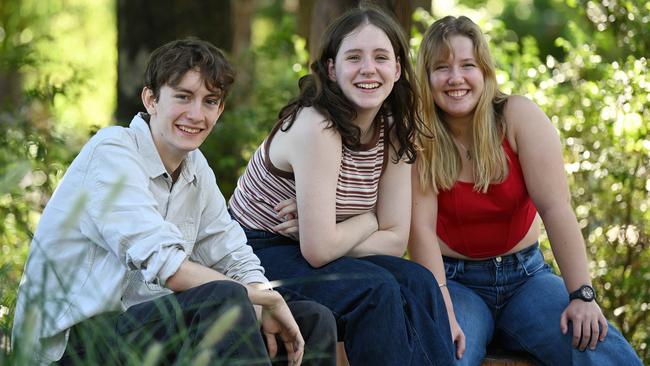Porn literacy push for school students
Consent education became mandatory for all schoolchildren in May 2023, now there are calls to also focus on porn literacy with rates of teens accessing explicit material a “public health issue”.
Schools Hub
Don't miss out on the headlines from Schools Hub. Followed categories will be added to My News.
All Australian high school students should receive porn literacy classes, with rates of young teens accessing explicit material now a public health issue, a leading campaigner says.
Consent education became mandatory for all schoolchildren across Australia in May 2023 after tireless campaigning spearheaded by Teach Us Consent founder Chanel Contos.

Ms Contos said feedback from students in the past year about consent education had been “overwhelmingly positive”.
“There’s lots of stories from parents and teachers talking about how they’re delivering consent education and how they’re having these important conversations,” she said.
“Lots of young men talking about them reflecting on their friends’ behaviours.”
Ms Contos said school leaders talking about the dangers of pornography to pupils was the “next step” for secondary classrooms.
“It has been quite taboo in the public space, but the rates of young people accessing it [pornography] from a young age is becoming a public health issue,” she said.
“The average age of first access to porn in Australia is now 11 years old and most of the time it’s accessed accidentally because porn sites advertise in chat rooms and while playing games online.
“It’s about teaching young teens that it’s not real life and then when they’re older and more likely intentionally accessing pornography, teaching them how to do so with a critical lens to understand that this isn’t a depiction of real life and pornography never exhibits consent.”
It comes as Federal Budget papers show a drop in future funding for consent education. About $20m has been budgeted for this financial year and $20m for next year for national consent and respectful relationships education, but this drops to $8m by mid-2026.

Federal Education Minister Jason Clare said it was “important” that young people were equipped with age-appropriate, evidenced-based education that improves their health, safety, wellbeing, and dignity.
“Teaching quality respectful relationships education helps students develop the social and emotional skills they need to form healthy relationships and ideas about acceptable relationship behaviour,” Mr Clare said.
Hillbrook Anglican School in Brisbane is ahead of the curve, having run a consent education program last year and extended it to include the dangers of pornography in Term 1 this year.
Year 12 student Sam Tarling said wider porn literacy lessons are needed, but it is an uphill battle against the age group’s “immaturity” at times.
“We, as a generation, are exposed to it [pornography] at a very young age and it gives everyone an extremely unrealistic view on what should happen during sex,” he said.
“Our school tries to tell us what the dangers are and how we can get help with it and give us those resources.”

Fellow Hillbrook Year 12 student Luce Kennedy said the influence of social media also emphasised the need for expanded consent and porn literacy education.
“I think our generation is very much involved in social media, so we hear on social media about all of these effects, but obviously, there’s this real glorification of it,” she said.
“I think in schools, there needs to be more of a push to involve it. I think schools are afraid to talk about it because it is ‘taboo’.
“But it’s about identifying what the problems are, especially for young people, because it ties in with that broader consent education.”
Classmate Eden Foote echoed the push for expanded consent and porn literacy lessons.
“A lot of people [our age] are immature, and they’re not very receptive to the information you learn about,” she said.
“I think maybe if people understood better, that that’s not how it goes, I think it really ties in with ensuring people have better relationships and safer sexual activity.”
Triple P Parenting head of training and clinical psychologist Dr Alan Ralph said parents should work with their child’s school to know what consent education is being taught.
“Consent education doesn’t stop at the school gate, and parents and carers play a vital role in helping children learn about consent, while also taking into account their family’s individual values, beliefs and situation,” Dr Ralph said.
“It’s important to have open, honest, and age-appropriate conversations about consent with children in a safe, judgement-free environment.
“By having positive communication with your child, it will strengthen your relationships and your child will feel comfortable coming to you if they’re experiencing anything that is worrying or concerning them.”
More Coverage
Read related topics:Let Them Be Kids




